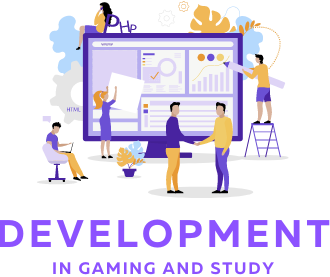The Evolution and Impact of Online Games: A Modern Entertainment Revolution
In the digital age, online games have emerged as one of the most influential and dynamic forms of entertainment. From their rudimentary beginnings to their current state of sophistication, online games have not only revolutionized gaming but also reshaped social interactions, cultural trends, and technology. This article explores the evolution of online games, their societal impact, and the future directions they may take.
The Genesis of Online Gaming
Online gaming’s origins can be traced back to codinghousebd.com the early 1970s when pioneers experimented with networked gameplay. The earliest examples, such as “MUD” (Multi-User Dungeon), offered text-based adventures where players could explore and interact with a virtual world through typed commands. These early games laid the groundwork for future developments in multiplayer gaming.
The 1990s marked a significant turning point with the advent of graphical multiplayer games. Titles like “Doom” and “Warcraft” introduced players to a new dimension of online interaction, allowing them to engage in competitive and cooperative play across networked systems. This era set the stage for the expansive, immersive experiences that would follow.
The Rise of Massively Multiplayer Online Games (MMOs)
The early 2000s saw the emergence of Massively Multiplayer Online (MMO) games, which took online gaming to unprecedented scales. Games such as “EverQuest” and “World of Warcraft” created persistent virtual worlds populated by thousands of players. These MMOs introduced complex social structures, economies, and political systems, transforming gaming into a collective social experience.
MMOs became virtual communities where players could forge friendships, join guilds, and participate in large-scale events. They also highlighted the potential for games to serve as platforms for social interaction, collaboration, and competition on a global scale.
Social Connectivity and Community Building
Online games have evolved beyond mere entertainment to become crucial social platforms. Games like “Fortnite,” “Minecraft,” and “Among Us” have integrated social features that enable players to communicate, collaborate, and compete with friends and strangers alike. These games have created spaces where people from diverse backgrounds can connect and interact in meaningful ways.
The social aspect of online gaming has given rise to new forms of community and engagement. From virtual events and tournaments to online forums and streaming platforms, gaming has become a central hub for social interaction and cultural exchange.
The Impact of Streaming and Content Creation
The rise of streaming services like Twitch and YouTube has transformed the gaming landscape, turning gameplay into a spectator sport. Gamers and content creators share their experiences, strategies, and personalities with millions of viewers, influencing trends and shaping the gaming industry. Streaming has also contributed to the growth of esports, where professional gamers compete in high-profile tournaments that attract global audiences.
Content creation and streaming have not only enhanced the visibility of games but have also created new career opportunities within the gaming ecosystem. Gamers can now build personal brands, engage with audiences, and monetize their passion through sponsorships and subscriptions.
Technological Advancements Fueled by Gaming
Online gaming has driven significant technological advancements. The demand for high-performance graphics, smooth online experiences, and immersive environments has led to innovations in hardware and software. Developments such as cloud gaming, which allows players to stream games from remote servers, and virtual reality (VR), which provides immersive experiences, are direct outcomes of the gaming industry’s influence.
As technology continues to advance, online games are expected to push the boundaries of what is possible. Innovations such as artificial intelligence (AI) and augmented reality (AR) are poised to further enhance gaming experiences, making them more interactive and engaging.
Challenges and Considerations
Despite its many benefits, online gaming is not without challenges. Issues such as cyberbullying, addiction, and privacy concerns are important topics that need to be addressed. The gaming community, developers, and regulators are working together to create safer, more inclusive environments and to promote responsible gaming practices.
Balancing the enjoyment of online games with the need for security and well-being remains a crucial aspect of the industry’s evolution. Ongoing efforts to address these challenges will help ensure that online gaming continues to be a positive and enriching experience for all players.
The Future of Online Gaming
Looking ahead, the future of online gaming is likely to be characterized by continued innovation and growth. Emerging trends include:
- AI and Machine Learning: AI is expected to enhance game design by creating more adaptive and responsive game worlds.
- AR and Mixed Reality: Augmented reality and mixed reality technologies may blend gaming with real-world environments, offering new and immersive experiences.
- Blockchain and NFTs: Blockchain technology and non-fungible tokens (NFTs) could transform digital ownership and in-game economies, providing players with unique assets and trading opportunities.
Conclusion
Online games have come a long way from their early beginnings, evolving into a major force in entertainment and technology. They have reshaped how we play, connect, and interact, creating a vibrant and dynamic industry that continues to push boundaries. As technology advances and new trends emerge, online gaming will undoubtedly continue to innovate and inspire, offering exciting possibilities for players around the world. Whether as a pastime, a social activity, or a professional pursuit, online gaming has firmly established itself as a cornerstone of modern entertainment and community.…









